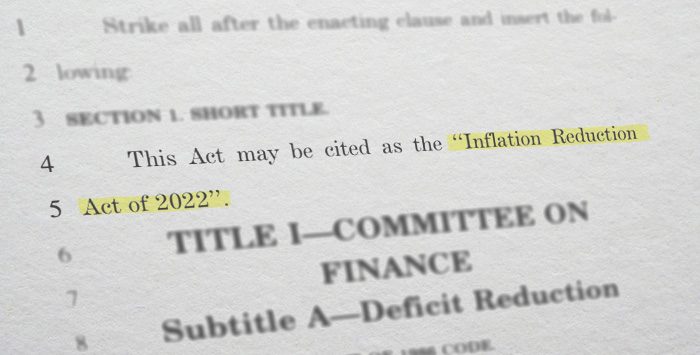According to the National Diabetes Statistics Report, as many as 38.4 million Americans have diabetes and as many as 8.5 million of them don’t even know it. Left untreated the condition can be associated with serious complications that affect the eyes, heart, kidney, and nerves.
Unfortunately, treatment can get expensive. A report by the American Diabetes Association found that diabetes costs the healthcare system $303.6 billion in direct medical costs every year. On average, a patient with diabetes will pay as much as $19,736 for healthcare each year ($12,022 of it on diabetes). Those costs are out of reach for many people. In fact, as many as 1 in 4 Americans say they forego medical care because they cannot afford it.
Thankfully, the Inflation Reduction Act – passed in 2022 – was designed to decrease how much Medicare enrollees have to spend on diabetes care.
Is it true that insulin will not cost more than $35 per month?
The Part D Savings Model started to offer discounted insulin in 2021. Not all Medicare Part D plans participated in the program but those that did could offer certain kinds of insulin at a rate of $35 per month. Not all insulin products were included in this program, however, and people that got their insulin through an infusion pump – which is covered by Part B rather than Part D – could not benefit from the program.
The Inflation Reduction Act put a monthly cap on the amount Medicare enrollees pay for all types of insulin. Since January 2023, Medicare beneficiaries have paid no more than $35 per month for their insulin. All types of insulin are included across all Part D plans. Insulin covered by Part B (for use in an insulin pump) has also been included since July 2023.
Keep in mind that some people require more than one kind of insulin to manage their diabetes – and the cap applies to each insulin product you take. (If you take two products, each one will be capped at $35 per month for a total of $70 per month.)
Did the IRA put a cap on the costs of other diabetic medications?
A wide number of medications are used to treat diabetes – and insulin is only one of them. The Inflation Reduction Act put a cap on insulin costs but not on the amounts Medicare enrollees will need to spend on these other medications.
One particular class of medications – GLP-1-receptor agonists – needs your attention. This class of medications includes – but is not limited to – drugs such as dulaglutide (Trulicity) and semaglutide (Ozempic, Rybelsus). Because these medications can be used to treat diabetes and are in injected into the body – similar to insulin – many people misunderstand this to mean that they are taking a kind of insulin. Please know that if you take one of these medications, it is not insulin and there will not be a $35 cap on the price. You will continue to require copays and coinsurance rates that are set by your Part D plan.
That does not mean Medicare beneficiaries will not see savings on these other diabetes drugs in the future. They will see them indirectly. That’s because the Inflation Reduction Act also sets a $2,000 cap on yearly out-of-pocket costs that will begin in 2025. That cap could offer considerable savings on more expensive diabetes drugs.
To get a sense of how impactful the law will be, let’s look at some real-life data. As of October 2024, Lilly USA reports a list price of $977 for a four-week supply of Trulicity and Novo Nordisk reports a list price of $968 for Ozempic. Neither of these medications is currently available as a generic.
Without insurance or rebates, costs could be as high as $11,600 to $11,800 per year. In 2022, more than 840,000 Medicare beneficiaries were treated with Trulicity and more than 780,000 Medicare beneficiaries were treated with Ozempic. It is easy to see how a cap on overall drug spending will help more than 1.5 million people who need these more expensive medications.
Read Does Medicare cover Ozempic and other drugs prescribed for weight loss?
Will the IRA allow Medicare to negotiate with drug companies for lower rates on my diabetes medications?
Until the Inflation Reduction Act passed, Medicare was not allowed to negotiate with drug companies to decrease costs. The law will now authorize the Secretary of Health and Human Services to engage in price negotiations for certain high-priced drugs beginning in 2026. Not all drugs will be eligible for negotiation, only those that do not have a generic option and those that have been on the market for at least 9 years for most drugs but up to 13 years for biologic medications.
In that first year, only 10 drugs covered by Part D will undergo price negotiations. These drugs include Eliquis, Enbrel, Entresto, Farxiga, Januvia, Imbruvica, Jardiance, NovoLog/Fiasp, Stelara, and Xarelto. The number will increase to 20 drugs by 2029.
There is no guarantee that one of GLP-1 receptor agonists will be up for negotiation in 2027, but it is possible. According to the CMS Medicare Part D Spending by Drug Dashboard, Trulicity – one of the GLP-1-receptor agonists – was ranked second for total Part D drug spending in 2022. The medication has been on the market since 2014 and its patent is not set to expire until 2029. Stay tuned.
Does Medicare cover needles and syringes if I need them to take my insulin?
People who take insulin may need additional supplies to administer it. If your insulin does not come in a prepackaged pen, you will need a syringe and needles to prepare and administer your doses. To prevent infection, you will also need alcohol swabs and gauze to clean the area before you inject yourself. These supplies are covered by Part D at rates set by your plan. What you pay will not be affected by the Inflation Reduction Act.
Does Medicare cover diabetic testing supplies?
Whether or not you take insulin, you will also need diabetes testing supplies to monitor your blood sugar levels. This will include items like glucometers (blood sugar monitors), blood sugar test strips, lancet devices, and glucose control solutions. These supplies are covered by Medicare Part B and you will pay a 20% coinsurance for them when you go to Medicare-approved supplier. The Inflation Reduction Act does not offer a price reduction on these items.
Not all retail pharmacies or Medicare suppliers accept assignment – and that could affect how much you pay at the point of service. Accepting assignment means that the supplier agrees to charge no more what Medicare recommends for these items. When you go to a retail pharmacy or supplier that accepts assignment, you will pay 20% up front and they will bill Medicare for the rest. Retail pharmacies that do not accept assignment, however, may require you to pay the full price. You will have to reach out to Medicare for reimbursement.
How much is covered depends whether or not you also take insulin. Specifically, someone who does not take insulin can get 100 test strips and 100 lancets every 3 months. Someone who takes insulin gets three times that, 300 tests strips and lancets, because their insulin dose may need to be adjusted based on their blood sugar readings. If you need more supplies, your healthcare provider will need to explain to Medicare why that is the case.
Tanya Feke, M.D. is a licensed, board-certified family physician living in New Hampshire. As a practicing primary care physician in Connecticut and an urgent care physician in New Hampshire, she saw first-hand how Medicare impacted her patients. In recent years, her career path has shifted to consultant work with a focus on utilization review and medical necessity compliance.
Dr. Feke is an expert in the field, having Medicare experience on the frontlines with both patients and hospital systems. To educate the public about ongoing issues with the program, she authored Medicare Essentials: A Physician Insider Reveals the Fine Print. Her analysis of Medicare issues is frequently referenced by the media and she is a contributor to multiple online publications. As founder of Diagnosis Life, LLC, she also posts regular content about health and wellness to her site at diagnosislife.com.
Tags: diabetes, Inflation Reduction Act, insulin






